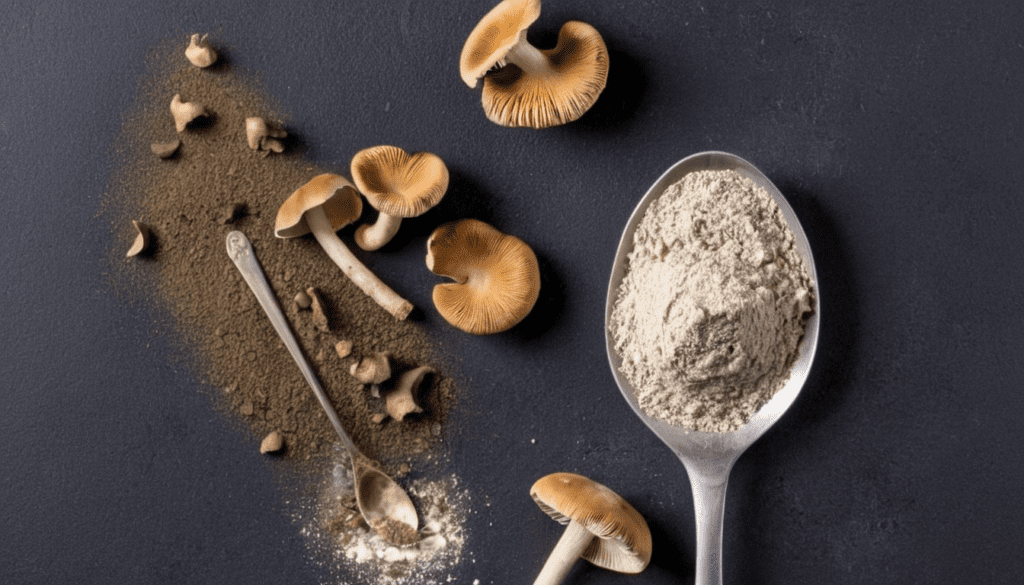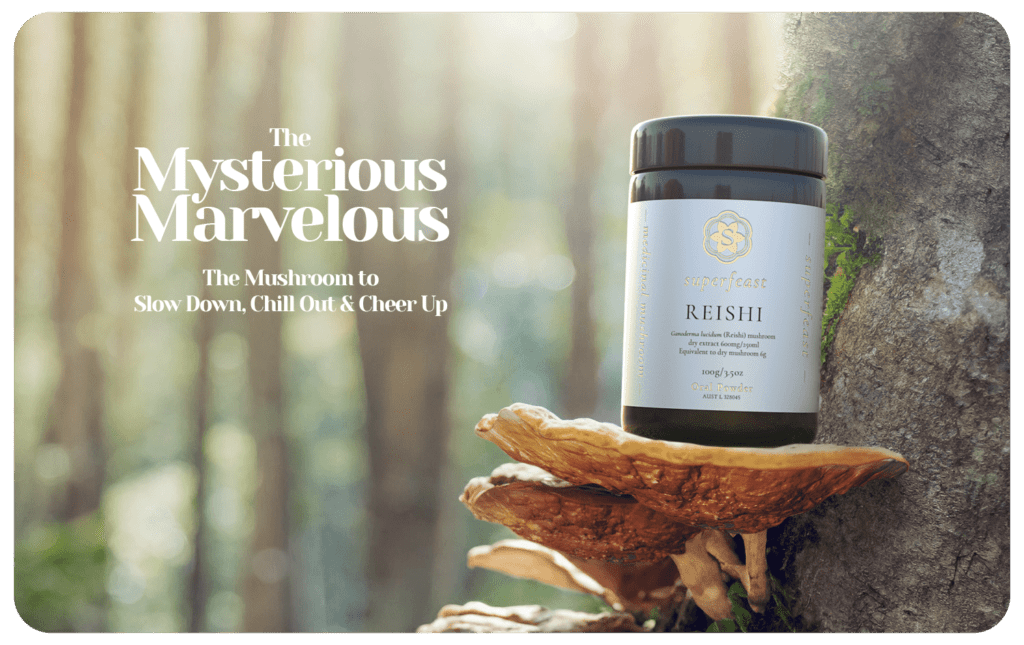As pet parents, we’re always looking for natural ways to boost our dogs’ health and longevity. One increasingly popular solution is medicinal mushrooms, a powerful gift from nature that has been used for centuries in traditional medicine. These special fungi offer an array of health benefits, from boosting the immune system to providing support against serious illnesses like cancer. In this article, we’ll explore the incredible benefits of medicinal mushrooms for dogs, how they can be safely incorporated into their diet, and why they are considered a safe option for your furry friend.
What Are Medicinal Mushrooms?
Medicinal mushrooms are a unique category of fungi that offer various therapeutic properties. Unlike typical mushrooms used in cooking, these mushrooms contain bioactive compounds that support immune function, reduce inflammation, and provide antioxidant benefits.
Here are a few medicinal mushrooms commonly used to support dog health:
- Reishi: Known for its calming and anti-inflammatory properties.
- Shiitake: Rich in vitamins and supports cardiovascular health.
- Maitake: Boosts the immune system and offers powerful antioxidants.
- Cordyceps: Enhances stamina and energy levels.
- Lion’s Mane: Promotes cognitive function and nerve regeneration.
- Turkey Tail: Widely studied for its anti-cancer effects and immune-boosting properties.
Benefits of Medicinal Mushrooms for Dogs
- Immune Support
One of the most researched benefits of medicinal mushrooms is their ability to strengthen the immune system. Mushrooms like Turkey Tail and Reishi are packed with beta-glucans, compounds that stimulate the immune system, helping dogs fight off infections, inflammation, and even tumors. For dogs with weakened immunity, whether due to age or illness, these mushrooms can be a game-changer. - Anti-Cancer Properties
Turkey Tail mushrooms are especially known for their powerful anti-cancer properties. A study conducted by the University of Pennsylvania School of Veterinary Medicine demonstrated that dogs with hemangiosarcoma, a type of cancer, showed improved survival rates when supplemented with Turkey Tail mushrooms (Coriolus versicolor). These mushrooms are rich in polysaccharides, which can help slow down the progression of cancer by boosting the dog’s natural immune response to fight the disease. - Anti-inflammatory Effects
Chronic inflammation is a common issue in dogs, especially older ones suffering from arthritis or joint pain. Reishi mushrooms contain triterpenes, compounds known for their strong anti-inflammatory effects. This makes Reishi an excellent natural remedy for dogs with joint issues, providing relief from discomfort and improving mobility. - Antioxidant Support
Many medicinal mushrooms, such as Shiitake and Maitake, are packed with antioxidants that protect the body’s cells from damage caused by oxidative stress. Oxidative stress can lead to premature aging and other degenerative diseases. By adding antioxidant-rich mushrooms to your dog’s diet, you help protect their cells and support overall vitality. - Cognitive Function
Just like people, dogs can experience cognitive decline as they age. Lion’s Mane mushrooms have been studied for their ability to support brain health, promote nerve regeneration, and potentially delay the onset of cognitive dysfunction in older dogs. This mushroom could be particularly beneficial for senior dogs showing early signs of confusion or memory loss.

Are Medicinal Mushrooms Safe for Dogs?
When considering adding medicinal mushrooms to your dog’s diet, one of the most common questions is whether they are safe. The short answer is: yes, medicinal mushrooms can be very safe and beneficial for dogs when used correctly. However, it’s essential to be mindful of a few key factors to ensure safety and maximize their benefits.
- Choose the Right Mushrooms
Not all mushrooms are suitable for dogs. While medicinal mushrooms like Reishi, Turkey Tail, Shiitake, and Maitake are beneficial, others—especially wild varieties—can be toxic. For this reason, it’s crucial to only use mushrooms specifically classified as medicinal and either consult your veterinarian or choose dog-safe supplements. - Proper Dosage Is Key
Like with any supplement, dosage is critical when using medicinal mushrooms for dogs. Start with small amounts and gradually increase, following dosage guidelines based on your dog’s size and weight. Most dog-specific mushroom supplements come with clear instructions on safe dosages. If you’re unsure, your veterinarian can help determine the appropriate amount for your dog’s needs. - Avoid Raw Mushrooms
Raw mushrooms, even some edible types, can be hard for dogs to digest and may cause gastrointestinal upset. Always cook mushrooms before giving them to your dog, as cooking breaks down difficult-to-digest compounds, making the mushrooms safer and more beneficial. When in doubt, it’s best to stick to high-quality supplements formulated specifically for dogs. - Watch for Allergies or Sensitivities
While most dogs tolerate medicinal mushrooms well, it’s always a good idea to introduce them slowly and monitor your pet for any signs of digestive upset, allergies, or unusual behavior. Common signs of food sensitivities include vomiting, diarrhea, itching, or changes in appetite. If any adverse reactions occur, discontinue use and consult your vet. - Consult Your Veterinarian
Although medicinal mushrooms are generally safe for dogs, it’s always advisable to check with your veterinarian before adding them to your dog’s diet, especially if your dog has pre-existing health conditions or is on medication. Some mushrooms, like Reishi, can have blood-thinning effects, which may interact with certain medications. A vet can offer tailored advice based on your dog’s health profile.
By choosing the right mushrooms and following proper guidelines, you can safely incorporate these powerful fungi into your dog’s diet, unlocking their full range of benefits—from immune support to anti-cancer properties.
How to Incorporate Medicinal Mushrooms Into Your Dog’s Diet
Introducing medicinal mushrooms to your dog’s diet can be easy and effective with the right approach. Here are some tips:
- Powders: One of the most common and convenient forms is mushroom powder. Simply sprinkle the appropriate dosage over your dog’s food, and mix it in well.
- Capsules: If powders aren’t an option, mushroom supplements in capsule form are widely available. These can be hidden in your dog’s favorite treat or wrapped in a small piece of food.
- Dog-Specific Mushroom Supplements: Many companies now offer dog-specific mushroom blends that are pre-measured and formulated for pets. Look for high-quality, organic options that are free from fillers or artificial additives.
It’s important to ensure the supplement is safe, organic, and sourced from reputable brands. Also, avoid using raw mushrooms as they can be difficult for dogs to digest and may contain toxins.
I personally use medicinal mushrooms from Superfeast for both myself and Kazumi. I’ve been using this brand for years, and the results speak for themselves—it’s been an essential part of our routine.
Precautions and Considerations
While medicinal mushrooms offer numerous benefits, it’s essential to approach any new supplement with caution. Here are a few important things to consider:
- Consult Your Veterinarian: Always check with your vet before starting your dog on any new supplement, especially if your dog has existing health conditions or is on medication. Your vet can help you determine the right dosage and advise you on any potential interactions. Many traditional vets may not fully endorse the use of mushrooms for pets, but a holistic veterinarian can provide expert guidance on safely incorporating them into your dog’s health regimen.
- Quality Matters: Ensure that you’re using products of the highest quality and purity and that they go through a series of rigorous testing.
- Moderation Is Key: It’s important to introduce mushrooms gradually and follow the dosage instructions carefully. Over-supplementing can lead to digestive upset or other adverse effects. As a general rule, you can give your pets a dose of SuperFeast herbs at 20mg to 50mg per kilo of body weight. So for a 40kg dog you’d want to give them 1/8-1/2 tsp daily depending on the weight of the herb.
Conclusion
Medicinal mushrooms are a powerful natural remedy that can provide incredible health benefits for dogs. From boosting the immune system to supporting joint and brain health, these fungi offer a holistic way to enhance your dog’s well-being. However, as with any supplement, it’s important to use them responsibly and consult with your veterinarian to ensure the best outcomes for your furry friend.
So why not consider medicinal mushrooms as part of your dog’s health regimen? By tapping into the power of nature, you may unlock a whole new level of vitality for your pup!
